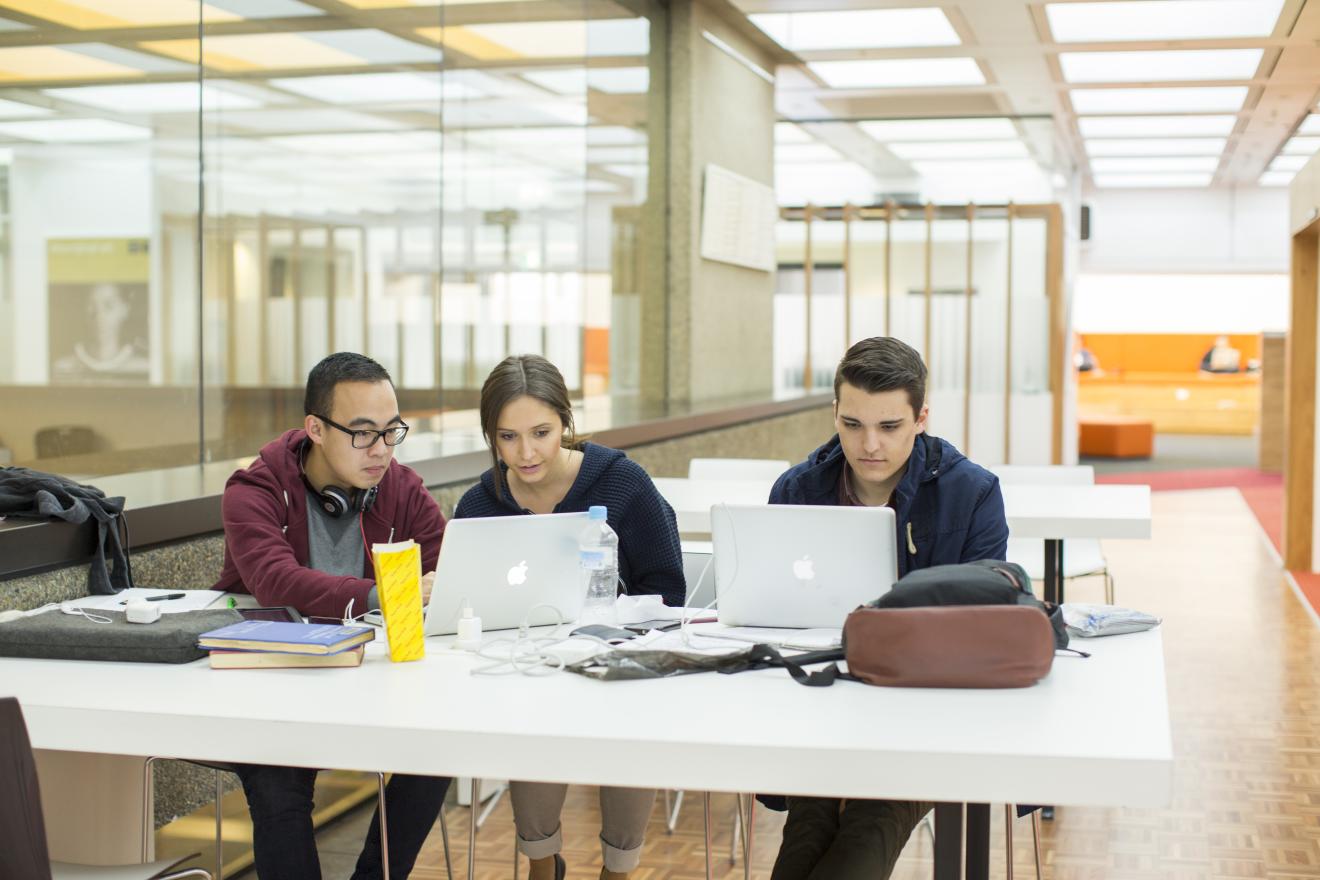
Using digital resources to expand student teacher knowledge. (Photo by Anna Zhu)
|
Lecturer: Faculty: Project: Keywords: |
|
Trialling the use of flipped teaching and learning strategies across subject areas in teacher education, Dr Anne Prescott is opening the digital doors to her teacher education students to assist in broadening and deepening their knowledge. What the project is aboutDr Prescott’s project is harnessing the power of global initiatives in online education such as MOOCs (Massive Open Online Courses) and the Khan Academy to support teacher education students develop deeper, broader content knowledge in specific topics in mathematics or science. This is done through a 'flipped learning' approach where students use MOOCs, or similar online education resources, to improve their understanding of concepts related to a specific topic area, then meet in small groups with teaching staff to further develop both their understanding and pedagogy. Pairs of students subsequently apply this knowledge in the design, teaching and evaluation of an authentic teaching activity for children at one of two partner primary schools. Why the project is being introducedCurrently UTS primary mathematics and science education subjects aim to enhance teacher education students’ technological, pedagogical, and content-based knowledge. However it can be difficult for students to develop sufficiently deep and broad content knowledge in the four years of preservice teacher education. Low confidence in proficiency due to limited content and conceptual knowledge constrains the students' ability as teachers to extend and differentiate the curriculum in mathematics and science. Student confidence also needs to be supported through the integration of teacher education students’ on-campus and practice-based learning experiences to bridge the divide that they may experience between learning and teaching in theory and practicum placements. How the project is being implementedThe project is using a flipped learning model, which blends off-campus, on-campus and primary school-based contexts for teaching and learning.
Exploring further
|

